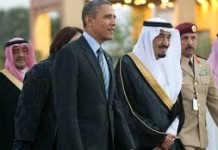Iftikhar Chaudhary: From Judicial Activism to Despotism?
Est boni judicis ampliare jurisdictionem
(It is the duty of a good judge, when requisite, to expand the limits of his jurisdiction). Or is it?
A conscious effort to blur the lines between good justice and broad jurisdiction has been going on for quite some time in Pakistan. It has ranged from adjudicating on the Basant kite-flying to regulating the petroleum prices in a quasi-market economy.
Egged on by politicians who lack the will, ability or both, to take on the existing neo-liberal political economy of Pakistan, the Supreme Court of Pakistan has ventured into what is the judicial equivalent of demagogy and has the potential of turning into judicial despotism.
Just as the concentration of judicial, executive and legislative powers in one body or person – as in a martial law – is bad, equally horrible is an activist judge’s attempt to usurp the powers of the executive or legislature. Holding an elected government hostage, by pointing the gavel to its head, is arbitrary and shall be seriously counterproductive.
The reasons that the political leadership of Pakistan has been throwing a plethora of political issues into Supreme Court’s lap are multifold.
First and foremost, a vast majority of the leaders are an integral part of the ruling class and thus have a vested interest in maintaining the status quo. However, the populist facade that many of these leaders maintain requires them to keep up a plebeian appearance, by nominally raising issues of public interest. A delicate balance however, is maintained by design to just keep the pot simmering but not to bring it to the boil.
Then there are political groups who despite their best effort cannot muster enough people to even violate section 144. Imran Khan and Qazi Hussain Ahmad fall under this category and their petitions against General Musharraf are partly responsible for the latter’s PCO. Trying to solve political matters by judicial means was never attempted even by Jinnah and Nehru – probably the best barristers Indo-Pak has ever produced.
Single point agenda movements, like the movement for the restoration of judges (2007-09) or the NGOs created with one or two socio-political objectives in effect undermine the political awareness of masses and subvert the evolution of a cohesive political movement.
Another major side effect of single item activism – even when conducted from the SC bench – is the distraction from other issues of national importance. A glaring example is that of the Taliban consolidation in Malakand. While the nation was busy with the pro-judiciary movement, Mullah FM and his coterie were taking over and fortifying the Malakand division.
Instead of taking on the incumbents in the parliament or through peaceful street protests, several political parties have decided yet again to bring the carbon emissions tax and petroleum development levy issues before the judiciary. If some of the informed circles are to be believed, this sparring is prelude to a bigger showdown in the offing.
The real political battle that may very soon be fought in the Supreme Court is reviewing the National Reconciliation Ordinance. The first person to mention the possibility of the SC taking up (and quashing) the NRO, was Barrister Aitzaz Ahsan, who brought this up in a TV talk show in the fall of 2007. This practically sowed the seeds of mistrust between an apprehensive PPP and the CJP. The direct outcome of this gimmick was that the restoration of judiciary was delayed for a year even after the democracy was restored. A political tug of war between the two different visions of the PPP thus caused much grief to the whole country.
The principals in this current saga run the risk of mutually assured destruction – notwithstanding their meetings with Richard Holbrooke – if the collision course is not reversed.
Thomas Jefferson, himself a lawyer and one of the most influential Founding Fathers of the nation that gave the world “principle of the separation of powers” aptly said that “judicial activism makes a thing of wax in the hands of judiciary which it can give the shape as it wishes.”
Chief Justice Iftikhar Chaudhary must not give in to the temptation of deciding political and executive matters brought to him by the politicians. Being the hero of a successful movement does not expand his jurisdiction but does double his responsibility to jealously guard the independence won by the judiciary at the cost of sweat and blood of the Pakistani people.
Tell Us What You Think



